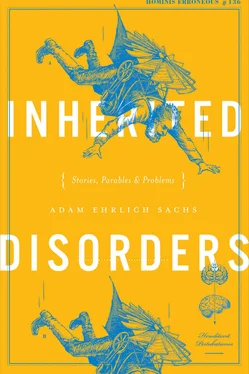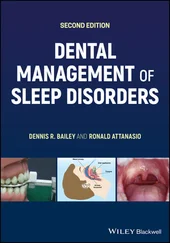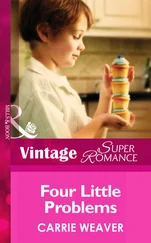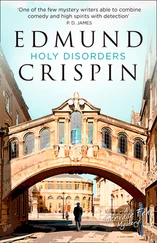Ordinarily his mother would have taken the lead on the funeral arrangements, but she was too distraught, my friend said. So she gave her son enough money for a decent cremation and trusted him to take care of it. Bad idea. He took the money and his father’s corpse to a budget cryogenics facility. Bad idea number two. The budget facility was all he could afford with the cremation money. At first they seemed competent enough. They cut off the labor historian’s head and stored it in a fancy-looking freezer. So far, so good. But three years later the company was bankrupt. They announced that the freezers would be unplugged at the end of the week. What could my friend do? He ran to the cryogenics facility with a bag of ice from 7-Eleven, took his dad’s frozen head home, and stuck it in the freezer. Later he bought another freezer, wholly devoted to the head. “Hence the dual freezer arrangement,” he said with pride, perching his father’s head on his lap and thumping both freezers at once.
The last seven or so years of his life, his father’s frozen head had accompanied him everywhere. He went back to college, and his father’s head came, too. The frozen head looked relieved during that period, according to my friend, who even remembers seeing a faint smile. Then they moved to Manhattan, my friend and the head, for a job interning at Scott Rudin’s film production company. That was a hard year. Every night when he got back to his Alphabet City walk-up, there was his dad’s head in the freezer, looking a little dubious. A kind of is-this-what-you-really-want-out-of-life? expression, according to my friend. Then things got worse. Rudin fired him. The head was furious! From its face it was clear the head wanted to have a little chat with Mr. Rudin. The son was tempted. He actually put his father’s head in a bag of ice, hailed a cab, and was halfway to Rudin’s office before he realized what a huge mistake he was making. If he hoped to succeed in the biz, he probably didn’t want a reputation as “that guy who brought in his father’s frozen head to confront Scott Rudin.” He had the cab turn around. That night he stayed up till three talking to the frozen head, and the next morning he applied to film school at USC.
They drove out to L.A. together. “That was an amazing road trip,” said my friend wistfully, resting his chin on his father’s half-thawed head. Some of his dad’s head slush smeared off onto his chin, which was weirdly touching. “We were probably closer during that trip than we’d ever been before,” he said.
But film school was a bust. He could tell from his father’s head’s expression that it was a lot less rigorous than the head had expected. It was no history doctorate, that’s for sure. His father’s expression, he said, went from dubious to disappointed. “Look!” he said, pointing at his father’s face. “Even right now, as I’m telling this story, he’s thinking I should have gotten a Ph.D. in history. The man is obsessed! In case you were wondering,” he said to the thawing head, “this is precisely why I don’t take you out of the freezer so much anymore.”
He covered his father’s big, unfrozen ears with his hands. “I quit film school,” he confided. “He doesn’t know that yet. Right now I’m just one hundred percent focused on writing this screenplay, and for money I work at a Coffee Bean.”
He uncovered his father’s ears and said loudly, “So, when I get my film degree, we’ll see what happens.”
“It’s been fifteen minutes, by the way,” I said.
“You can stand another five,” said my friend to the head. “Can’t you? You don’t want to be cooped up in that freezer again, I don’t think.”
Just then a whole sheet of ice calved off the frozen head’s heavily-lined forehead and hit the floor, liquefying on impact. “Fuuuck,” my friend groaned. He pointed at a cupboard. “Mind snagging the paper towels?” As I kneeled down to mop up the forehead puddle, I noticed — I don’t think I was inventing this — that the father’s head was trying to catch my eye. He was almost thawed out. All that remained was a thin coating of ice over his slightly parted lips. He looked a little panicked.
“So,” I asked with forced nonchalance, “what happens when he’s fully melted?”
“I’ve only gone this far once before,” said my friend. “Last time, when his mouth ice melted, he murmured something to me. I’m curious if he’ll do it again.”
“After that you should really put him back in the freezer.”
“Yep, after that, back he goes.”
As the father’s face grew more and more agitated, and we waited for the melting of his mouth ice, I inquired about the current state of reanimation technology. How long from now till they’re able to resurrect the man?
Again he covered his father’s ears.
“They could do it today,” he said. “The technology’s there. I’m the holdup now. I’m waiting until I, you know, achieve something. I don’t want him back until he can be proud of me. Is that ridiculously selfish?”
“No, not at all.”
“It is, isn’t it? That’s why so much depends on this screenplay. I know it’s got some structural problems, but I’m kind of hoping it’s the one.”
“I hope so, too,” I said, knowing it was not.
The last piece of ice slid from his father’s open mouth and hit the floor. The son, solemn all of a sudden, lifted his father’s now totally unfrozen head and put its mouth to his ear like a conch shell.
Sure enough, the lips moved.
There was a raspy, rabbinical sound.
Then the head said something.
I missed it, but evidently the son did not. He put his father’s head back on the kitchen table, snatched his script, stomped into his room, and slammed the door.
The labor historian’s head stared at me, terrified.
Hastily I found the other pair of head-handling gloves under the sink and returned the head to its freezer. The head seemed relieved, but also very sad and very alone.
As I slipped out of the apartment I could hear the son ripping up page after page.
• • •
But I said there was a happy ending, sort of.
A little while later my friend gave me a call. “Really sorry for how things ended the other day,” he said. “That must have been kind of awkward for you.”
“No, no. Not to worry. How do things stand with your father’s head?”
“Well, not so good.”
“No reconciliation?”
“Not as such. Listen. You guys seemed to get along pretty well. I noticed how he kept catching your eye.”
“I think he was just scared.”
“He liked you, obviously. And that’s fine. Actually, that’s great. I was hoping you could take him for a while. I can’t really write with him in the freezer. I’m happy to struggle, but I can’t struggle with my father’s frozen head in the other room, do you know what I mean?”
“Absolutely.”
“It’s just hard to do the whole struggling-Hollywood thing with your father’s head twenty feet away in a freezer, if that makes any sense.”
“It makes perfect sense.”
I pictured life with the labor historian’s head, and I liked what I saw. I have kind of a distant relationship with my own father, who is extremely supportive but a bit aloof, so I felt that I might really benefit from a judgmental visage in the freezer.
I said, “I would be very happy to take him off your hands for a while.”
“Thanks,” he said. “Thank you. Seriously.”
“No problem.”
“I owe you one.”
“It’s my pleasure.”
“Promise me one thing, though. You can’t resurrect him until I’ve made it.”
I knew by that point that he would never “make it” in Hollywood, or probably anywhere else, but still I said: “I won’t, I promise.”
Читать дальше












